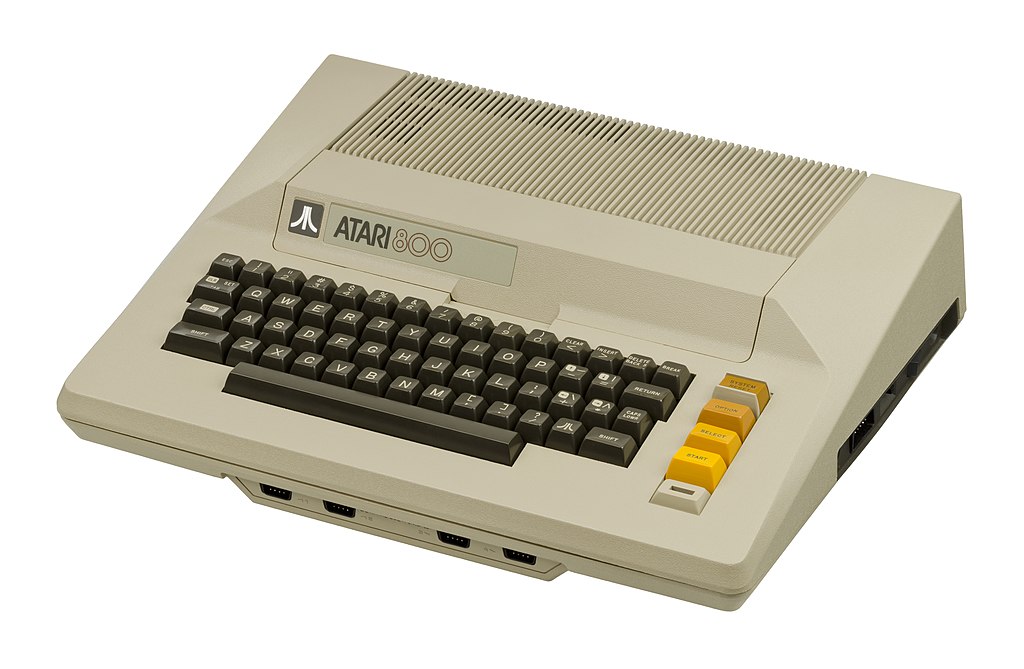The Atari 800
This is my latest blog piece delving into nostalgia of how IT was an integral part of my youth and upbringing.
This time I’m writing about my first ever home PC. With the advent of home computers such as the Commodore 64, Apple II and Spectrum ZX-81, the home PC market was created and began to gain traction in the late 1970s and early 1980s.
Atari recognised, rightly, that while these gadgets in the home could be useful for balancing chequebooks, keeping recipes or perhaps writing letters, one of the big uses was going to be computer games. As they were then masters of the computer game business with their 2600 console (which I wrote about here), they decided to build two computers? One could take on the Apple II, but also plug and play cool cartridge games (the Atari 800). The other, a cheaper model, could be marketed as a games machine but could also be used as a real computer (the Atari 400).

So I asked for – and was kindly given – a birthday present of an Atari 800 home computer. It had a ground-breaking 48k of memory (yes that is a k, not an M or a G!). It had a standard QWERTY keyboard with 62 full-travel keys and 4 special keys to the right of the keyboard.
It was easily one of the best-looking models available. It also stood out amongst the other computer offerings of the day with its graphics and sound capabilities. It was capable of producing up to 256 colours. It’s fair to say that in the Atari 800 was in another league compared with any of the competitor models available at the time. Like all home computers of that time, it could be attached to a TV, but uniquely it could also be attached to a high-resolution monitor.
So what did I do with the Atari 800? Well I didn’t play games on it (I had the Atari 2600 for that!). I actually learned to program on it, in the BASIC computing language. This stood me in good stead when I subsequently studied computing studies and took an ‘O’ level in the subject (to younger readers that’s like a GCSE).
Unfortunately for Atari, they got themselves caught in a strategic dilemma in the 1980s, trying to be both game company and home PC company. Ultimately this was to be their downfall, but that’s another story. So there weren’t many Atari home PCs after the 800.
As I sit here writing this blog on a Dell laptop with 64GB of RAM, it’s almost unfathomable that I could ever have written programs on a home PC with 48k of memory. But I did, and one of them carried me through my ‘O’ levels as well as school tests.
So there you have it, my favourite computer of all time, the Atari 800.
